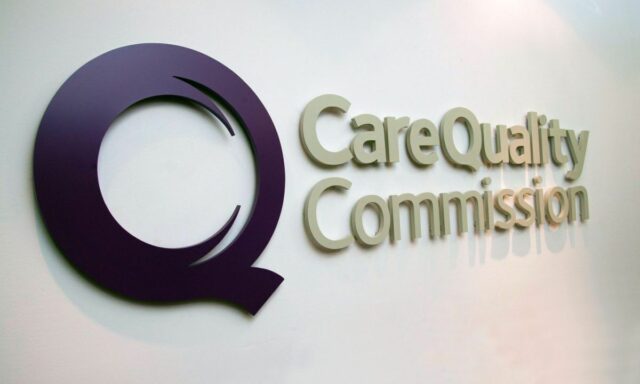The impact of connection: how digitisation of Mental Health Act processes are transforming crisis care
14 November 2025

When Thalamos first set out to digitise the Mental Health Act (MHA), the goal was simple: to make a complex, paper-driven legal process swifter, simpler and safer for the people and professionals it affects.
What began as a conversation about the digitisation of signatures has since become a catalyst for cultural and systemic change across the country.
Igniting change
Before 2020, no national mechanism existed for completing and signing MHA forms digitally. Paperwork travelled between police, hospitals and local authorities by car, fax or email attachment, often taking hours to arrive.
Working alongside the Department of Health and Social Care, NHS England and the Care Quality Commission, Thalamos helped demonstrate that digital signatures could meet the same legal standards as ink on paper.
That breakthrough did more than modernise documentation. It established a lawful digital precedent that now underpins the delivery of the Mental Health Bill 2025. Digitisation is no longer an experiment; it is the infrastructure that turns statutory ambition into daily reality.
Building partnerships that scale
Today, Thalamos technology is in daily use by some of the country’s largest and most complex mental health and policing organisations.
The Metropolitan Police Service and British Transport Police use Thalamos to manage Section 136 detentions and place-of-safety handovers.
Cheshire & Wirral NHS Foundation Trust, Dorset HealthCare and other regional providers have adopted the same digital pathways, ensuring continuity of care and communication across agencies and large geographies.
Across London, some of the largest NHS Mental Health Trusts in the country use the platform to complete and exchange MHA forms in real time — with records integrated into EPRs and Shared Care Records.
Working closely with the Care Quality Commission, Thalamos has also developed the first digital pathway for sharing Second Opinion Appointed Doctor (SOAD) certificates directly and securely. This gives the CQC real-time visibility of treatment authorisations, strengthens clinical governance and reduces administrative delay for hospitals and doctors alike. For the first time, regulatory oversight of Mental Health Act decisions can happen as events unfold rather than weeks later — a key step towards a modern, data-driven assurance model that supports patient rights and professional accountability.
These deployments are not pilots but live, operational systems supporting thousands of assessments every month and proving that integrated policing-health workflows can function lawfully at scale.
Proving the benefits
Across Trusts and forces, the results are consistent. In Dorset, digitisation has produced compelling clinical and administrative time savings inside six months. It has also cut down on the travel time professionals were spending completing, amending and redoing MHA forms.
Cheshire & Wirral cut errors down to nearly 0% and now capture reliable data on every MHA decision, turning once-anecdotal bottlenecks into measurable process improvements.
In London, the Metropolitan Police reported a 31% fall in Section 136 detentions, attributed to faster information flow and clearer communication between officers and health partners.
For the first time, organisations can see when assessments start and finish, where delays occur and how quickly individuals move through the system. Each digital record strengthens accountability: every signature, timestamp and outcome is auditable, giving regulators, coroners and Parliament greater assurance that the Act is being applied safely and consistently.
From local success to national opportunity
If scaled nationally, the gains become transformational. Independent modelling shows that removing manual MHA paperwork and scanning across NHS mental health environments would create the equivalent of 36,400 nursing shifts every year, or around 230 additional full-time nurses available to Trusts without increasing headcount.
For policing, digitising the Section 136 process removes repeated form-filling, scanning and handover delays. It is releasing 37,380 Metropolitan Police hours annually that are being redeployed to frontline public-safety work.
This national opportunity is not theoretical. Recent economic modelling shows that a three-year investment of £41 million to digitise Mental Health Act pathways across Part 2 of the Act would generate a £290m return. Much of this 6.1x return on investment is driven by reducing avoidable detentions through earlier access to Advance Choice Documents, ensuring preferences are visible at the moment decisions are made — a key reform at the heart of the Mental Health Bill 2025.
AMHPs, as guardians of the Act and the professionals with statutory responsibility for making applications under it, also gain practical advantages. Digitisation gives AMHP services earlier visibility of Section 136 detentions and pending assessments, enables faster access to independent Section 12 doctors and supports better-informed assessments that lead to more effective patient care.
Local authorities, which host and oversee AMHP services, benefit from faster access to reliable information on admissions and treatment authorisations, helping to reduce Section 117 after-care disputes and improve coordination across community pathways.
For Integrated Care Boards, council leaders and policing partners, the opportunity is clear: a unified digital pathway that reduces risk, delivers measurable system savings and strengthens statutory oversight. duces risk, delivers measurable savings and strengthens oversight.
Joining up the pathway
Every MHA assessment involves multiple professionals and organisations, each carrying part of the legal and clinical responsibility. Thalamos brings those parts together.
Forms move instantly and securely between police, acute and Mental Health Trusts. Data flows onward to local authorities, the CQC and second-opinion doctors. Everyone involved can see the same information, reducing risk, duplication and delay.
The UK’s leadership in digitising mental-health law is now attracting international attention from governments exploring how technology can uphold rights and reform care. It is an example of public-service innovation that delivers both humanity and efficiency — and one England can confidently share with the world.
The next chapter is not just about forms and signatures. It is about building a public-service infrastructure where data, dignity and duty align.
Further reading:
- A new milestone: the first fully digitised Mental Health Act journey
- How Thalamos makes user testing work — and why it matters
- Dr Finder launches to streamline Mental Health Act assessments
Figures derived from Dorset HealthCare x Thalamos six-month review; time-and-motion analyses at Cheshire & Wirral Partnership, Metropolitan Police and British Transport Police; and NHS England 2023-24 Mental Health Act Statistics (52,458 detentions). Calculations assume 7.5-hour nursing and 8-hour policing shifts.


